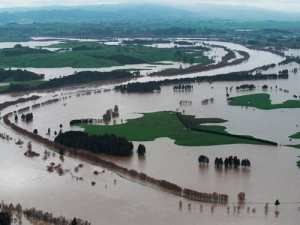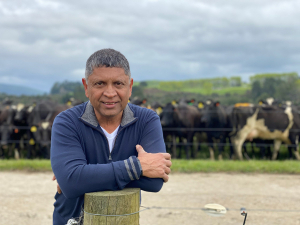Waikato farmers are being thanked for helping flood-prone communities in the region.
Waikato Regional Council says it is greatly helped by farmers to protect communities living in or near flood protection schemes.
The regional council is responsible for 612 kilometres of stopbanks which protect 253,000 hectares of land from flooding. It relies on licensees who lease land with stopbanks for grazing, to maintain the structures’ integrity.
Integrated Catchment Management Committee chair Stu Husband said the last two winters had been exceptionally wet, and he thanked the farmers who had kept stock off the stopbanks during this time.
“One way we protect the integrity of the stopbanks is by managing vegetation. It’s good to see farmers keeping stock off the stopbanks in winter, when it is wet, to prevent them from being damaged by trampling.
“Many people do not realise that stopbanks are built and shaped from earth (soil) to a specific design and then grassed for cosmetic and stability purposes. The grass plays an important role to hold the bank together. If the grass is being trampled and turned to mud, parts of the stopbank can become weak causing it to potentially breach or fail in a flood event.
“A stopbank is only as strong as its weakest point.”
The council has 282 grazing licences for stopbank land across the Lower Waikato and Hauraki Plains.
The licensees have the day-to-day responsibility of looking after the river control land, which contains the flood protection assets, including soil conservation plantings.
The licences also generate income to help offset some of the maintenance costs for the upkeep of the flood protection scheme.
“Safety is priority one for the community,” says Husband. “And the land use on the council’s scheme land has to support that priority.
“The council would like to thank those licensees who continue to manage these areas to a high standard or who, in the case of any damage, make the appropriate repairs as soon as practical.”
Any surface damage should be repaired and reseeded as soon as conditions permit. Stock should be excluded from the repair area until the pasture is sufficiently re-established. A brochure for licensees is available on the regional council website, and can be downloaded free of charge.











